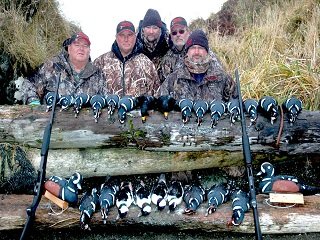 As hunters, we have a lot of responsibility when it comes to following rules and representing all other hunters in our actions. However, being a hunter requires a lot more than just good stewardship and being generally responsible; it requires extra skills and abilities. Here are some tasks that every hunter should master.
As hunters, we have a lot of responsibility when it comes to following rules and representing all other hunters in our actions. However, being a hunter requires a lot more than just good stewardship and being generally responsible; it requires extra skills and abilities. Here are some tasks that every hunter should master.
Animal Identification
Identifying animals that you are in pursuit of might seem like common sense and easily accomplished, but it’s not. We have all heard stories of people who have shot the wrong animal by ‘mistake.’ Often times, shooting the wrong sized animal or the wrong sex can lead to game violations, especially game birds and waterfowl. If you make an identification mistake while hunting waterfowl which are federally protected, you could possibly be committing an actual federal crime. Knowing your quarry is tantamount to being an ethical and responsible hunter.
Before you hunt, do your homework. Hunters who are over-prepared are usually people who are used to achieving a high level of success in the outdoors. If you shoot first and identify animals later, you are part of the problem. Don’t be that person.
Watch videos. There is no excuse to not be educated these days with access to unlimited videos on unlimited websites where you can learn almost anything. Again, watching waterfowl videos is a great place to start.
If you want to be really diligent, contact the local fish and game office and get copies of all their free handouts and pamphlets. All state game management agencies have websites and you will find a pile of free information on those sites, including photos and videos.
Another great resource for identifying animals can involve a visit to your local taxidermist. Most taxidermists are busy but they do have showrooms where you can go and look at mounts to learn more about animals in up close detail.
Proper Foot Care
Before you scratch your head on this one, remember that feet are the most important part of your body if you need to get somewhere in the wild outdoors. The military makes proper foot care mandatory training for all recruits and there is a reason why. A hunter in the field or a solider on the battlefield are both worthless if they cannot walk or hike.
Although the importance of proper hygiene is common knowledge, blisters are the number one risk that we hunters and hikers face. The key to preventing blisters is to learn how to recognize ‘hot spots’ on your feet before they turn into blisters. Hot spots are just what they imply; they are spots on your feet where some sort of friction or movement is occurring and this action eventually wears a blister into existence. You can cover a hot spot with Band-Aids, medical tape or glue, but only after you thoroughly clean the area on the skin first. Stopping a hot spot from manifesting into a blister could save your life under a certain set of circumstances.








